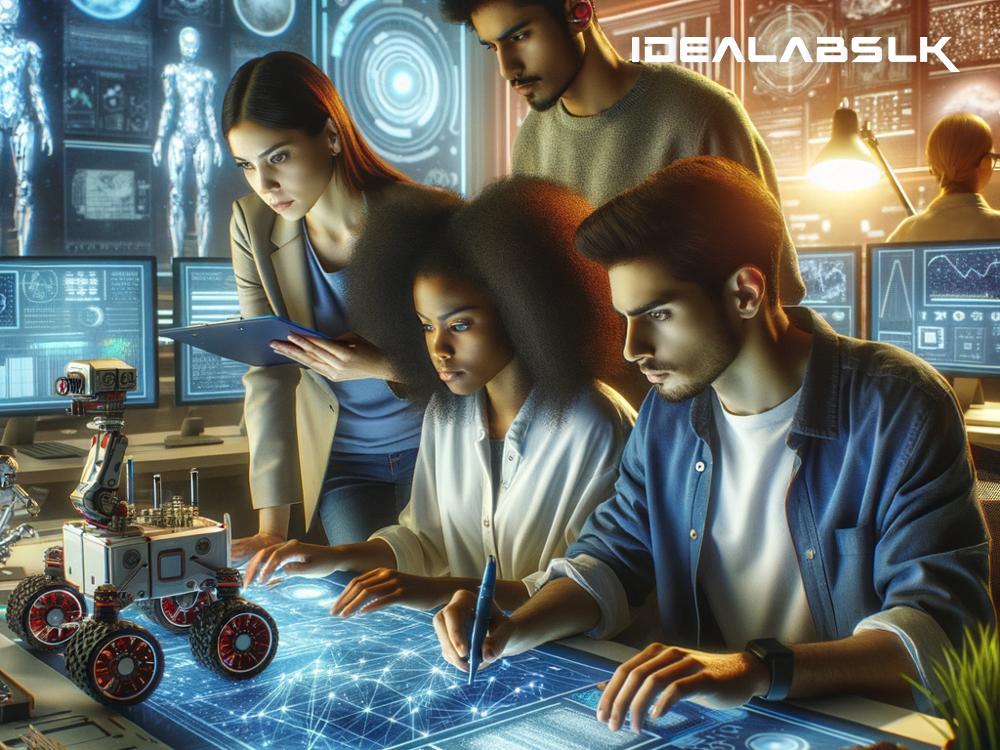How AI and Robotics Are Revolutionizing Space Research and Exploration by 2025
As we step into the future, the realms of space research and exploration are undergoing a radical transformation, thanks to the groundbreaking advancements in Artificial Intelligence (AI) and robotics. By 2025, these technologies are not just add-ons but pivotal elements fueling our quest to understand the universe. Their impact is profound, reshaping how we approach space missions, and pushing the boundaries of what's possible.
The AI and Robotics Fusion: A Game Changer for Space Exploration
AI and robotics are a match made in heaven, especially when it comes to exploring the vast, unknown expanses of space. Robotics offers the physical ability to venture into environments too harsh or distant for humans, while AI provides the brains, making sense of vast amounts of data and making decisions on the fly.
Enhanced Decision-Making Capabilities
One of the most significant impacts of AI is its ability to process and analyze data at speeds no human can match. In the context of space exploration, this means AI can swiftly sift through data from telescopes, satellites, and probes, identifying points of interest or concern much faster than before. By 2025, AI-driven analytics are expected to unlock new discoveries in our understanding of planets, stars, and galaxies, by spotting patterns and anomalies humans might overlook.
Moreover, AI enhances robotic autonomy, allowing them to make critical decisions during missions. Imagine a rover on Mars that encounters a problem. Instead of waiting for instructions from Earth, which could take up to 24 minutes, the rover uses AI to assess the situation and decide the best course of action instantaneously. This elevates the efficiency and success rate of missions, making space exploration safer and more cost-effective.
Advanced Robotics: The Hands and Feet in Outer Space
Robotics in space isn't a new concept; however, the advancements by 2025 paint a picture of robots that are more versatile, resilient, and capable than ever before. These machines range from rovers exploring planetary surfaces to autonomous drones flying through the skies of other worlds, and even robotic arms repairing satellites in orbit.
The key to these advancements lies in the incorporation of AI into robotic systems, making them not only better at performing tasks but also able to adapt to unforeseen challenges. For instance, robots equipped with AI can analyze the terrain of a planet in real-time, adjusting their path to avoid obstacles, or even conduct scientific experiments autonomously, deciding on the most relevant samples to collect based on the immediate data they gather.
Expanding the Horizons of Communication and Navigation
AI and robotics are also set to revolutionize the way we navigate and communicate in space. Traditional methods, reliant on ground-based systems and pre-defined paths, are giving way to more dynamic, real-time solutions powered by AI. Spacecraft equipped with AI can analyze their environment, making instant navigational adjustments based on current space weather conditions, asteroid fields, or other celestial bodies.
On the communication front, AI-driven algorithms are enhancing the way data is transmitted across space, optimizing bandwidth and reducing the risk of data loss. By 2025, these advancements will ensure that we can send and receive data from the farthest reaches of space more reliably and efficiently, enabling deeper and more detailed exploration than ever before.
Accelerating the Pace of Discovery and Settlement
Perhaps the most exciting prospect is how AI and robotics together are accelerating the timeline for major space milestones, including the exploration of Mars and beyond. By automating the analysis of potential landing sites, assessing environmental conditions, and even constructing habitats autonomously, these technologies are playing a crucial role in making human settlement on other planets a foreseeable reality.
Moreover, AI's ability to simulate and predict various space phenomena allows researchers to prepare for and mitigate potential hazards, ensuring the safety of both robotic and human explorers.
Conclusion
As we look towards 2025 and beyond, it's clear that AI and robotics are not just aiding space research and exploration but redefining it. By harnessing these technologies, we're not only expanding our knowledge of the universe but also ensuring that the next chapters in the story of human space exploration are as bold and ambitious as possible. The future of space exploration with AI and robotics offers a tantalizing glimpse into a universe of possibilities that, until now, we've only dared to dream about.

